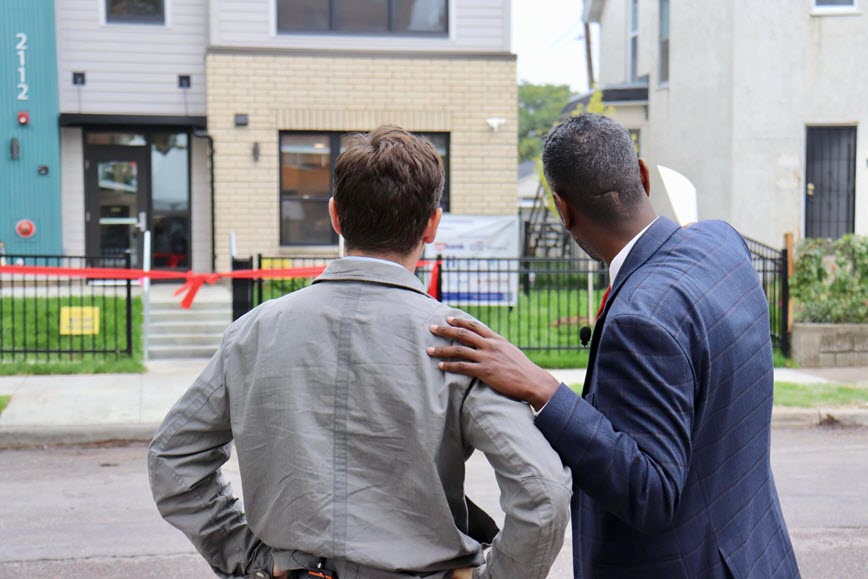Affordable housing
Ongoing efforts to keep housing affordable
Affordable Housing Trust Fund
Mayor Frey believes everyone deserves a safe and stable place to live. This fund helps the City pay for building and keeping affordable rental homes. It is for people who earn less than 50% of the area median income. Priority goes to households earning less than 30% of area median income.
Mayor Frey has increased funding to the Affordable Housing Trust Fund by tens of millions of dollars during his time as mayor.
Minneapolis 2040 Comprehensive Plan
Mayor Frey has been a champion and leader of the 2040 Plan. The plan, passed in 2019, guides the city's growth for 20 years. This includes historic zoning reforms. These reforms allow for a diversity of use in all neighborhoods.
Through the plan, Minneapolis has produced a record number of affordable rental units. It has also kept rents among the lowest in the country.
Stable Homes Stable Schools
The mayor's Stable Homes Stable Schools initiative provides housing and housing assistance to many children and families. This program has helped more than 5,000 children and 1,800 families.
What to know
Stable Homes Stable Schools:
- Started in 2019
- Includes rental assistance
- Includes all Minneapolis Public Schools (MPS) elementary schools
- Is a permanent part of the mayor’s budget
Stable Homes Stable Schools is a partnership between:
- City of Minneapolis
- Minneapolis Public Schools
- Minneapolis Public Housing Authority
4D Affordable Housing
The 4d affordable housing to helps property owners keep rental homes affordable. Mayor Frey started this incentive.
4d property owners get:
- A break on taxes if they promise to keep some of their homes affordable.
- Help to make their homes more energy-efficient.
- Funding resources to keep rents low.
Contact us
Office hours
8 a.m. – 4:30 p.m.
Monday – Friday
Address
City Hall350 S. Fifth St., Room 330
Minneapolis, MN 55415


